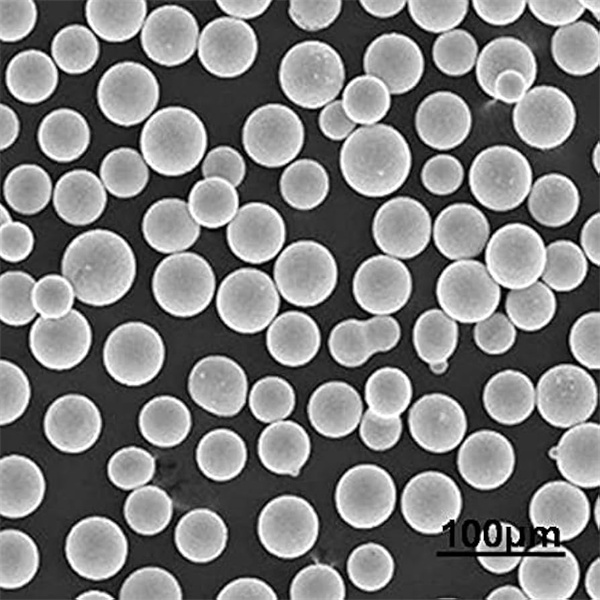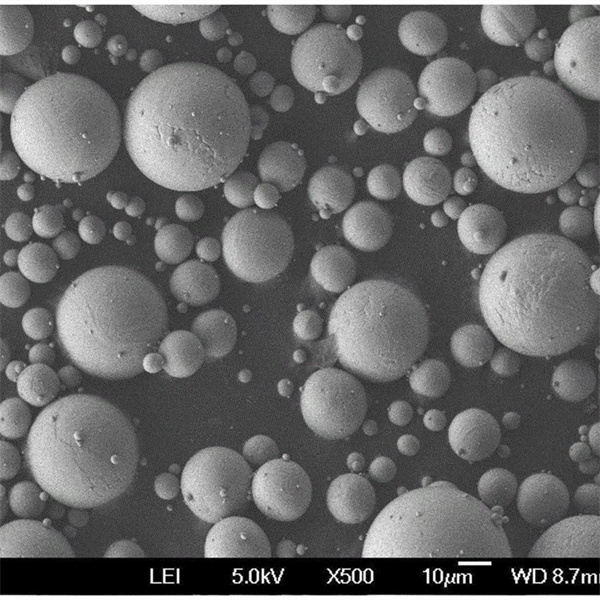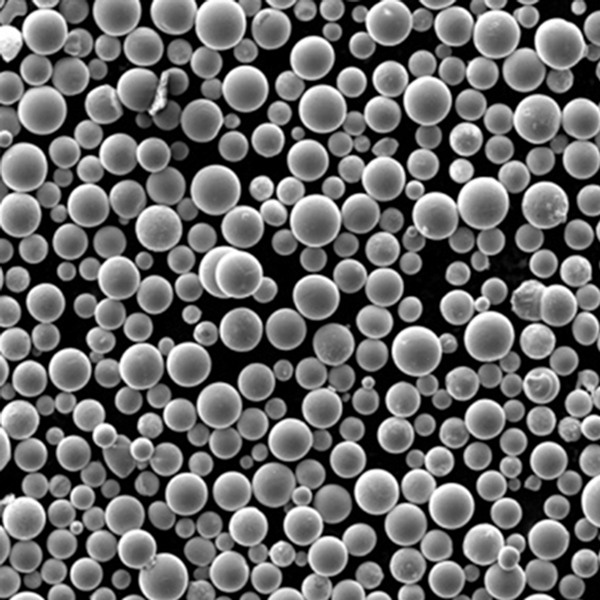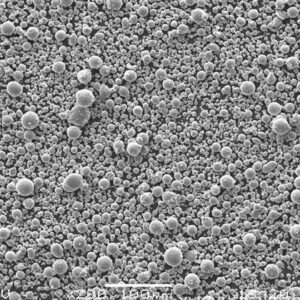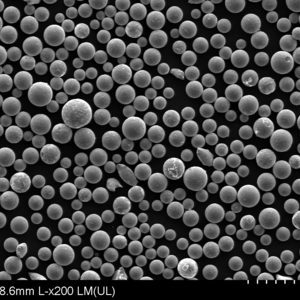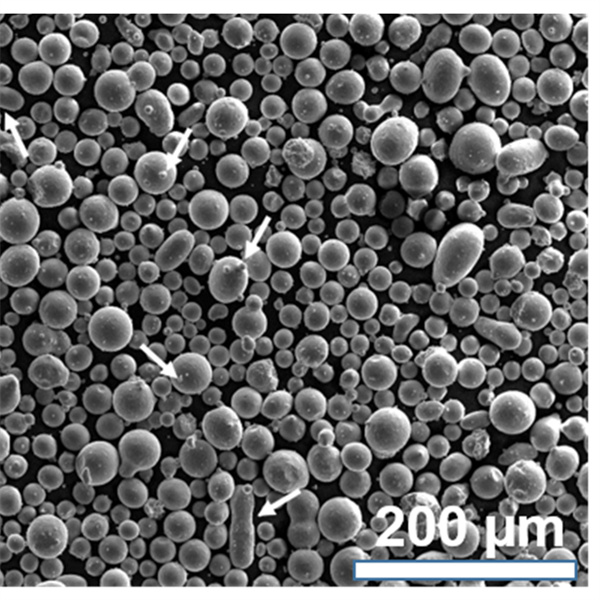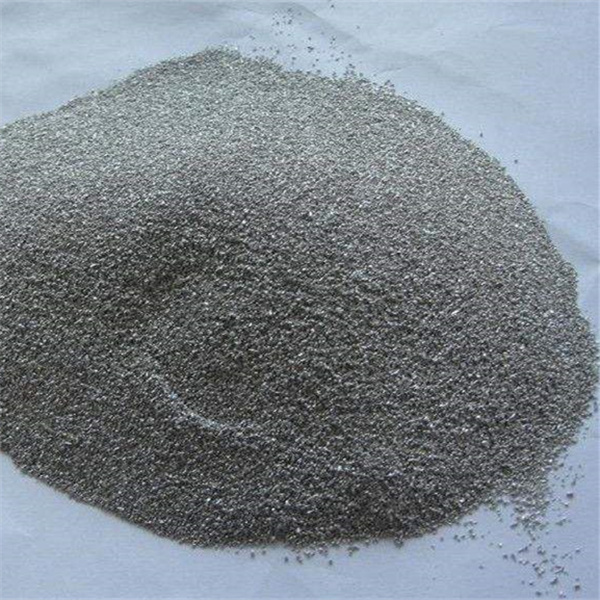Best inconel 718 powder for 3D printing
Inconel 718 powder (IN718) is a well-known nickel-based superalloy powder that is extensively used in high-value-added engineering applications such as jet engines in aerospace and steam generators in nuclear power plants, as well as in the defense and marine sectors.
Low MOQ
Provide low minimum order quantity to meet different needs.
OEM & ODM
Provide customized products and design services to meet unique customer needs.
Adequate Stock
Ensure fast order processing and provide reliable and efficient service.
Customer Satisfaction
Provide high quality products with customer satisfaction at the core.
share this product
Table of Contents
Overview of Inconel 718 Powder
Inconel 718 is a precipitation hardenable nickel-based superalloy powder widely used for additive manufacturing across aerospace, oil & gas, power generation and automotive industries. This article provides a detailed guide to Inconel 718 powder.
Key aspects covered include composition, properties, AM print parameters, applications, specifications, suppliers, handling, inspection methods, comparisons to alternatives, pros and cons, and FAQs. Tables are used to present information in an easy-to-reference format.
Composition of Inconel 718 Powder
The composition of Inconel 718 is:
| Element | Weight % | Purpose |
|---|---|---|
| Nickel | 50 – 55 | Principal matrix element |
| Chromium | 17 – 21 | Oxidation resistance |
| Iron | Balance | Solid solution strengthener |
| Niobium | 4.75 – 5.5 | Precipitation hardening |
| Molybdenum | 2.8 – 3.3 | Solid solution strengthening |
| Titanium | 0.65 – 1.15 | Carbide former |
| Aluminum | 0.2 – 0.8 | Precipitation hardening |
| Carbon | 0.08 max | Carbide former |
Trace amounts of cobalt, boron, copper and magnesium are also added to enhance properties.
Properties of Inconel 718 Powder
Key properties of Inconel 718 include:
| Property | Description |
|---|---|
| High strength | Tensile strength 1050 – 1350 MPa |
| Phase stability | Retains strength after prolonged use up to 700°C |
| Corrosion resistance | Resistant to aqueous corrosion and oxidation |
| Weldability | Readily weldable with matching filler |
| Fabricability | Easy to form and machine |
| Creep resistance | High stress rupture strength at high temperatures |
The properties make Inconel 718 suitable for the most demanding applications.
AM Print Parameters for Inconel 718 Powder
Typical parameters for printing Inconel 718 powder include:
| Parameter | Typical value | Purpose |
|---|---|---|
| Layer height | 20 – 50 μm | Balance speed and resolution |
| Laser power | 195 – 350 W | Sufficient melting without evaporation |
| Scan speed | 700 – 1300 mm/s | Density versus build rate |
| Hatch spacing | 80 – 160 μm | Mechanical properties |
| Support structure | Minimal | Easy removal |
| Hot isostatic pressing | 1120°C, 100 MPa, 3h | Eliminate internal voids |
The parameters depend on factors like build geometry, temperature management and post-processing needs.
Applications of 3D Printed Inconel 718 Parts
Inconel 718 parts made by AM are used in:
| Industry | Components |
|---|---|
| Aerospace | Turbine blades, disks, hot section parts |
| Oil & gas | Downhole tools, valves, pumps |
| Power generation | Combustion cans, transition ducts |
| Automotive | Turbocharger wheels, exhaust valves |
| Medical | Orthopedic implants, surgical tools |
Benefits over wrought parts include complex geometries and reduced buy-to-fly ratios.
Specifications of Inconel 718 Powder for AM
Inconel 718 powder must meet the following specifications for 3D printing:
| Parameter | Specification |
|---|---|
| Particle size range | 10 – 45 μm |
| Particle shape | Spherical morphology |
| Apparent density | > 4 g/cc |
| Tap density | > 6 g/cc |
| Hall flow rate | > 23 sec for 50 g |
| Purity | >99.9% |
| Oxygen content | <100 ppm |
Custom size distributions and controlled composition available.
Suppliers of Inconel 718 Powder
Prominent Inconel 718 powder suppliers include:
| Supplier | Location |
|---|---|
| Praxair | USA |
| Carpenter Powder Products | USA |
| Sandvik Osprey | UK |
| LPW Technology | UK |
| Erasteel | France |
| AP&C | Canada |
Prices range from $50/kg to $150/kg, influenced by quality and order quantity.
Handling and Storage of Inconel 718 Powder
As a reactive material, Inconel 718 powder requires controlled handling:
- Store sealed containers in a cool, dry inert atmosphere
- Prevent exposure to moisture, air, temperature extremes
- Use properly grounded equipment during transfer
- Avoid dust accumulation and ignition sources
- Local exhaust ventilation recommended
- Follow applicable safety guidelines
Correct storage/handling prevents composition changes or hazards.
Inspection and Testing of Inconel 718 Powder
Inconel 718 powder batches are validated using:
| Method | Parameters Tested |
|---|---|
| Sieve analysis | Particle size distribution |
| SEM imaging | Particle morphology |
| EDX | Chemistry and composition |
| XRD | Phases present |
| Pycnometry | Density |
| Hall flow rate | Powder flowability |
Testing per ASTM standards ensures batch-to-batch quality consistency.
Comparing Inconel 718 to Alternative Superalloy Powders
Inconel 718 compares with other alloys as:
| Alloy | Cost | Printability | Weldability | Strength |
|---|---|---|---|---|
| Inconel 718 | Low | Good | Excellent | Medium |
| Inconel 625 | Medium | Excellent | Excellent | Low |
| Inconel 939 | Very High | Fair | Limited | Excellent |
| Haynes 282 | High | Good | Limited | Excellent |
For balanced properties at lower cost, Inconel 718 supersedes other Ni superalloys for many applications.
Pros and Cons of Inconel 718 Powder for AM
| Pros | Cons |
|---|---|
| Proven material credentials in AM | Lower high temperature strength than some alloys |
| Excellent weldability and machinability | Susceptible to solidification cracking during printing |
| Readily printed into complex shapes | Requires controlled atmosphere handling |
| Cost advantage over exotic superalloys | Significant post-processing often required |
| Available from range of suppliers | Relatively low hardness after printing |
Inconel 718 enables high performance AM at a reasonable cost.
Frequently Asked Questions about Inconel 718 Powder
Q: What particle size range works best for printing Inconel 718 alloy?
A: A range of 15-45 microns provides the optimum combination of flowability, high resolution, and high density parts.
Q: What post processing is typically required for Inconel 718 AM parts?
A: Hot isostatic pressing, heat treatment, and machining are commonly needed to eliminate voids, optimize properties, and achieve tolerances.
Q: Is Inconel 718 easier to 3D print than other Ni superalloys?
A: Yes, its excellent weldability and lower cracking susceptibility make Inconel 718 one of the easier Ni-based superalloys to process by AM.
Q: What industries use Inconel 718 alloy for metal 3D printing?
A: Aerospace, oil & gas, power generation, automotive, and medical sectors are major applications benefiting from additively manufactured Inconel 718.
Q: Does Inconel 718 require supports when 3D printing?
A: Minimal supports are recommended on overhangs and bridged sections to prevent deformation and allow easy removal after printing.
Q: What defects can occur when printing Inconel 718 powder?
A: Potential defects are cracking, porosity, distortion, incomplete fusion, and surface roughness. Most can be prevented with optimized parameters.
Q: What hardness can be expected with Inconel 718 AM components?
A: Hardness after printing is typically 30-35 HRC. Post-processes like aging can increase it to 40-50 HRC for higher wear resistance.
Q: What accuracy can be obtained with Inconel 718 printed parts?
A: Comparable dimensional tolerances and surface finishes to CNC machined components can be achieved after post-processing.
Q: Is hot isostatic pressing mandatory for Inconel 718 3D printed parts?
A: HIP eliminates internal voids and improves fatigue life. It may not be required for non-critical applications.
Q: What alloy powder has properties closest to Inconel 718 for AM?
A: Inconel 625 has comparable corrosion resistance and weldability to 718 but lower strength. Inconel 939 trades weldability for higher strength.
About Met3DP
Product Category
HOT SALE
CONTACT US
Any questions? Send us message now! We’ll serve your request with a whole team after receiving your message.

